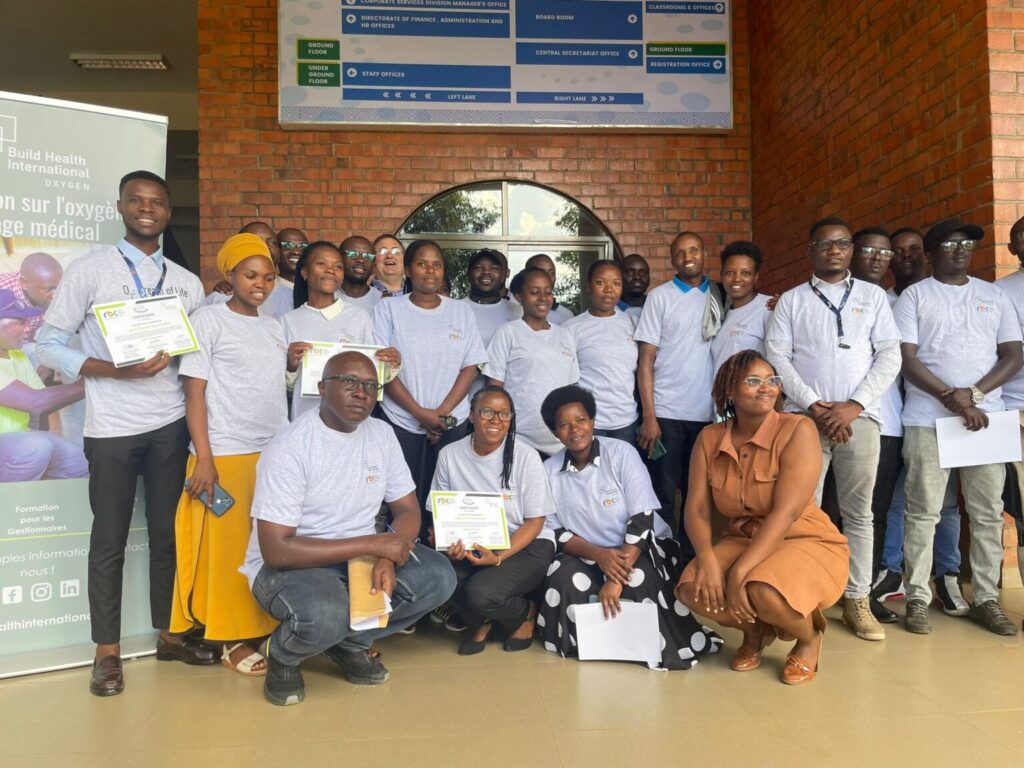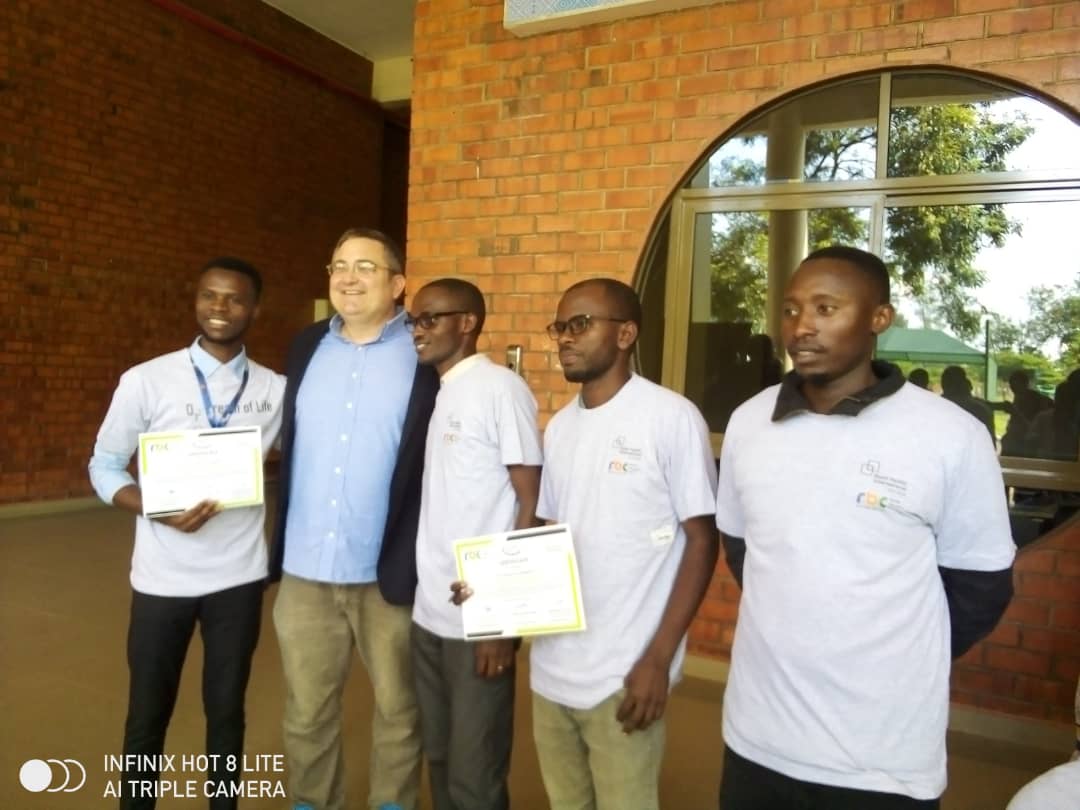BHI expanding access to medical oxygen with oxygen safety training

Trainees with their trainers.
Build Health International( BHI), a nonprofit U.S.-based NGO that builds health infrastructure, in close partnership with the RBC, Rwanda Biomedical Center and other partners at the Ministry of Health (MOH) as well, is expanding access to medical oxygen with oxygen safety training to maintenance teams , the engineers and technicians that actually touch the PSA plants on a daily basis.
Andrew L. Johnson, Director of Medical Oxygen Education and Training explains that the training was on how to take care of their PSA plants to do daily checklists, daily and preventative maintenance, routine repairs.
“We’re training them on how to take care of their PSA plants, to do daily checklists, daily and preventative maintenance, routine repairs.
We had those trainings last year in August, we came back and did a management training for hospital directors and senior national level health officials on medical oxygen and on how to manage the maintenance and integrate oxygen plants into health systems.”
He Said“And that was very exciting and very successful for everybody. And we’ve been asked to come back to do a safety training for the hospitals that have oxygen but do not have PSA plants, so the ones who are using wall-mounted oxygen piping and cylinders. And so, it’s been a really fantastic process.” He added

Joseline Nzayisenga, a teacher at IPRC Kigali says that as teacher teaching technicians who work in the maintenance of hospitals equipment’s ,hope that the trainees will be able to apply the skills they have acquired.
’’ There is hope these are already technicians in the Hospitals and they know the problems they face.
They have asked questions, and they have managed to understand well how they should maintain the plants and managing them and in working with oxygen safely in order help Rwandan community.This training is very useful and I hope they will do it well.” She said
BHI tries to work with it’s partners to raise the quality of health care, increase access to oxygen, and build a better future in Rwanda.
BHI is training technicians here to better manage medical oxygen. And so this is really BHI is seeking to equip them with knowledge, with some approaches, some attitudes, and some practices to ensure a higher level of safety in hospitals.
Jean Claude Niyonsaba, a technician from Kibogora Hospital says that he has acquired specific skills on how to work with oxygen safely and specific ways that somebody needs to work with highly pressurized gases.
“When you bring more oxygen into a hospital, you improve patient care, but you also increase risk of fire, and you increase some other types of risks.

I have acquired skills on working with oxygen safely. Oxygen in cylinders is highly pressurized, so there are specific ways that somebody needs to work with highly pressurized gases. Cylinders, oxygen in cylinders saves lives, but a cylinder that falls down can become a missile because it’s highly pressurized. It can become a rocket. So we want to make sure in the hospitals the cylinders are very properly restrained, well taken care of.”
Niyonsaba says BHI is developing some online resources, will share those with the MOH, with the RBC, with the IPRC, to make sure those are available as well. Since the COVID pandemic, BHI found a lot of opportunities to partner with organizations like the RBC to scale up medical oxygen access in countries and Rwanda has been just a wonderful partner in this regard.
Rwanda was ahead of the curve in terms of buying PSA plants and getting them in-country and success to BHI is that the plants continue to work over the long period.That requires continuing to build skills in maintaining the plants and managing them and in working with oxygen safely.
Nyirangaruye Clémentine

